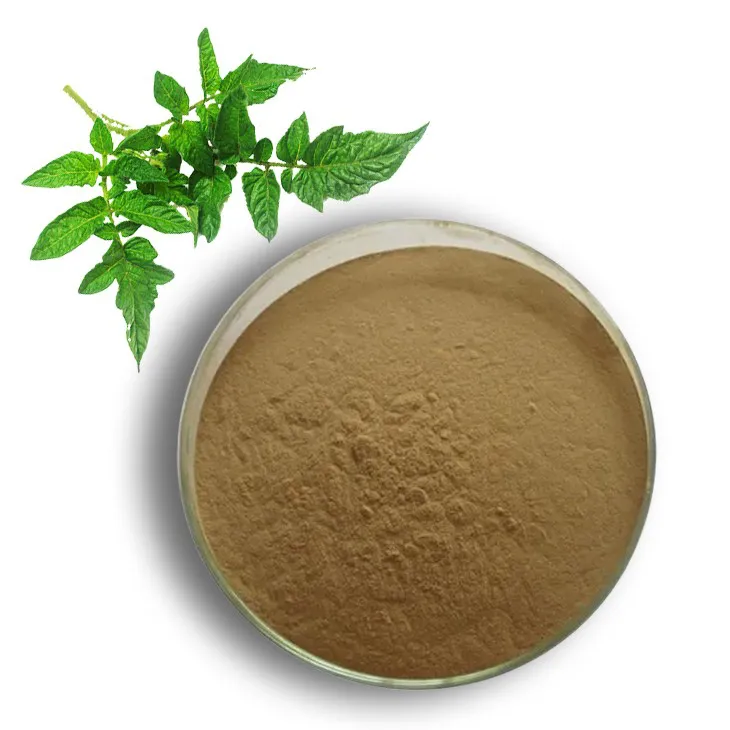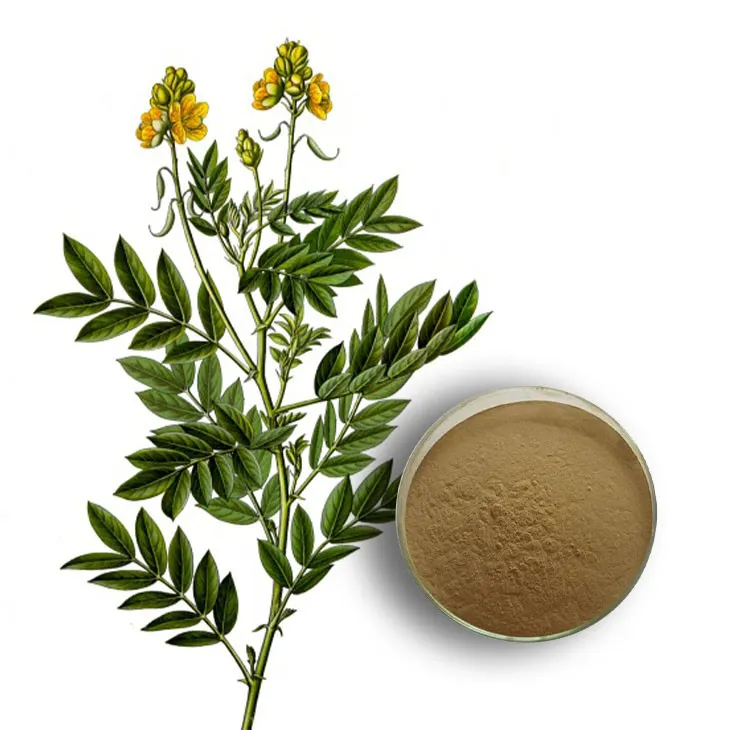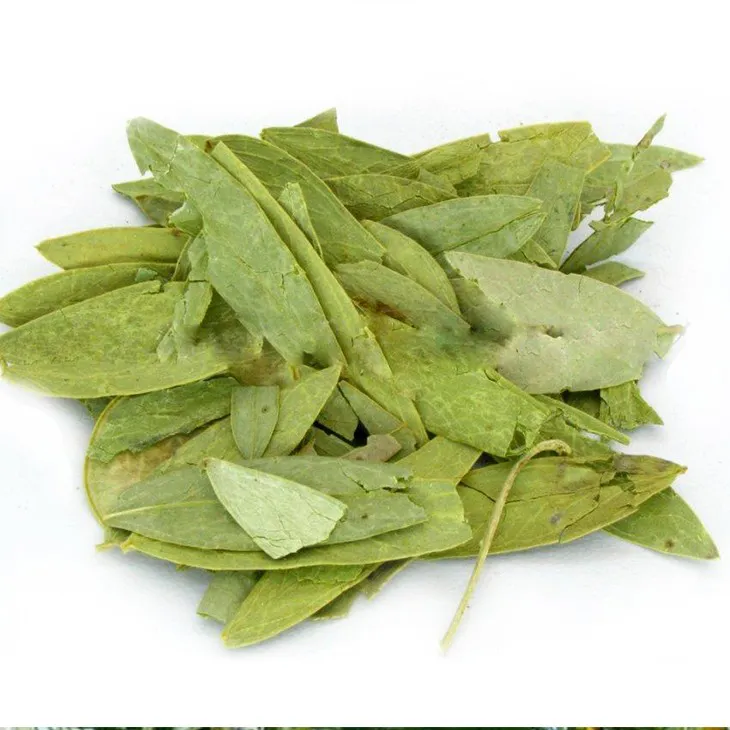- 0086-571-85302990
- sales@greenskybio.com
Senna Leaf Extract: Should You Use It for Skin Care?
2024-11-13

1. Introduction
In the world of skin care, new ingredients are constantly emerging, each claiming to offer a unique set of benefits. One such ingredient that has been garnering attention is Senna Leaf Extract. This extract has a complex profile that makes it both interesting and somewhat controversial in the context of skin care. Understanding its properties, potential benefits, and risks is crucial for consumers who are looking to make informed decisions about the products they use on their skin.

2. Chemical Composition of Senna Leaf Extract
Senna leaves contain a variety of chemical compounds that contribute to their biological activities. These include anthraquinones, which are known for their laxative properties in traditional medicine. In the context of skin care, however, it is other components that are of more interest. For example, flavonoids are present in Senna Leaf Extract. Flavonoids are a large group of plant metabolites that have antioxidant properties. They can help in neutralizing free radicals in the skin, which are known to cause damage to cells and contribute to premature aging.
Another important group of compounds in senna leaf extract are tannins. Tannins have astringent properties, which means they can cause the contraction of skin tissues. This can be beneficial in reducing pore size and giving the skin a tighter appearance. However, it is important to note that the presence of these compounds also means that senna leaf extract can be quite potent and may not be suitable for all skin types.

3. Potential Benefits for Skin Care
3.1 Anti - inflammatory Effects
One of the most promising aspects of senna leaf extract for skin care is its potential anti - inflammatory effects. Inflammation in the skin can be caused by a variety of factors, such as environmental pollutants, allergens, and hormonal imbalances. Chronic inflammation can lead to a range of skin problems, including acne, eczema, and psoriasis.
The phytochemicals present in senna leaf extract may help to reduce inflammation by modulating the body's immune response. This can be particularly beneficial for those with acne - prone skin. Acne is often associated with inflammation, and by reducing this inflammation, senna leaf extract may help to reduce the redness and swelling associated with acne breakouts.
3.2 Antioxidant Activity
As mentioned earlier, the flavonoids in senna leaf extract have antioxidant properties. Antioxidants play a vital role in skin health by protecting the skin from the damage caused by free radicals. Free radicals are unstable molecules that are produced as a result of normal metabolic processes, as well as exposure to environmental factors such as UV radiation and pollution.
By neutralizing free radicals, senna leaf extract can help to prevent oxidative stress in the skin. Oxidative stress can lead to the breakdown of collagen and elastin, which are the proteins responsible for maintaining the skin's elasticity and firmness. Therefore, the antioxidant activity of senna leaf extract may help to keep the skin looking youthful and healthy.

4. Risks and Adverse Reactions
4.1 Skin Sensitivity
While senna leaf extract may offer potential benefits, it also comes with risks, especially for those with sensitive skin. The astringent and potentially irritating properties of the extract can cause discomfort, redness, and itching in sensitive individuals. Sensitive skin is more likely to react negatively to strong botanical ingredients, and senna leaf extract is no exception.
It is important for those with sensitive skin to patch - test any product containing senna leaf extract before using it on a larger area of the skin. This can help to determine whether or not an individual will have an adverse reaction to the ingredient.
4.2 Overuse Concerns
Even for those with non - sensitive skin, overuse of senna leaf extract can be a problem. Due to its powerful nature, overuse may lead to excessive drying of the skin. This can disrupt the skin's natural moisture barrier, making the skin more vulnerable to external irritants and infections.
Additionally, overuse of products containing senna leaf extract may also lead to a rebound effect, where the skin's condition worsens over time instead of improving. This is why it is crucial to follow the recommended usage instructions when using products that contain this ingredient.
5. Interaction with Different Skin Types
5.1 Normal Skin
For those with normal skin, senna leaf extract can be used in moderation as part of a skin care routine. Its antioxidant and potential anti - inflammatory properties can help to maintain the skin's health and prevent future problems. However, it is still important to monitor the skin's response to the extract and discontinue use if any adverse reactions occur.
5.2 Oily Skin
Oily skin may benefit from the astringent properties of senna leaf extract. The tannins in the extract can help to reduce excess oil production, which can in turn help to prevent clogged pores and acne breakouts. However, due to the potential for irritation, it is advisable to start with a low - concentration product and gradually increase the usage if the skin tolerates it well.
5.3 Dry Skin
Senna leaf extract is generally not recommended for those with dry skin. The drying effects of the extract can exacerbate the dryness and flakiness of the skin, leading to further discomfort. Dry skin already has a compromised moisture barrier, and the use of senna leaf extract may further disrupt this barrier.
6. Current State of Evidence
The evidence regarding the effectiveness and safety of senna leaf extract in skin care is still somewhat limited. While there are some in - vitro studies that suggest its potential benefits, such as antioxidant and anti - inflammatory activities, more research is needed, especially in the form of clinical trials on human subjects.
Many of the claims made about senna leaf extract in skin care products are based on its known properties in traditional medicine or on in - vitro studies. However, in - vitro studies do not always translate directly to in - vivo effects in humans. Therefore, it is important to approach the use of senna leaf extract in skin care with caution until more conclusive evidence is available.
7. Conclusion
Senna leaf extract is an ingredient with both potential benefits and risks in the realm of skin care. Its anti - inflammatory and antioxidant properties make it an interesting option for those looking to improve their skin health, especially for acne - prone or oily skin. However, its potential for causing irritation and adverse reactions, especially in those with sensitive or dry skin, cannot be ignored.
Given the current state of evidence, consumers should be cautious when using products containing senna leaf extract. It is advisable to consult with a dermatologist or skin care professional before incorporating senna leaf extract - based products into one's skin care routine. By doing so, individuals can make an informed choice that takes into account their skin type, sensitivities, and overall skin care goals.
FAQ:
What are the potential benefits of Senna Leaf Extract for skin care?
The potential benefits of Senna Leaf Extract for skin care include anti - inflammatory effects. This is due to certain phytochemicals present in it, which can be helpful for those with acne - prone or irritated skin.
What are the risks of using Senna Leaf Extract in skin care?
Senna Leaf Extract is a powerful botanical. Overuse or use on sensitive skin could lead to adverse reactions.
How does Senna Leaf Extract interact with different skin types?
The article examines how it interacts with different skin types. However, specific details are not provided here and would need to be further explored within the full study. Generally, while it may have benefits for acne - prone or irritated skin, it can pose risks to sensitive skin.
What is the chemical composition of Senna Leaf Extract relevant to skin care?
The article looks into the chemical composition relevant to skin care, but no specific components are mentioned here. More in - depth research on the chemical composition would be needed to fully understand its effects on the skin.
Is there enough evidence to support the use of Senna Leaf Extract in skin care?
The article examines the current state of evidence regarding its effectiveness and safety in skin care. Without more information from the full study, it's not clear if there is 'enough' evidence. It seems that more research may be needed to firmly establish its role in skin care.
Related literature
- The Potential of Botanical Extracts in Skin Care: A Review"
- "Safety and Efficacy of Herbal Extracts in Dermatology"
- "Understanding Phytochemicals in Skin - care Ingredients"
- ▶ Hesperidin
- ▶ citrus bioflavonoids
- ▶ plant extract
- ▶ lycopene
- ▶ Diosmin
- ▶ Grape seed extract
- ▶ Sea buckthorn Juice Powder
- ▶ Beetroot powder
- ▶ Hops Extract
- ▶ Artichoke Extract
- ▶ Reishi mushroom extract
- ▶ Astaxanthin
- ▶ Green Tea Extract
- ▶ Curcumin Extract
- ▶ Horse Chestnut Extract
- ▶ Other Problems
- ▶ Boswellia Serrata Extract
- ▶ Resveratrol Extract
- ▶ Marigold Extract
- ▶ Grape Leaf Extract
- ▶ blog3
- ▶ blog4
- ▶ blog5
-
Organic Tongkat Ali extract powder factory.
2024-11-13
-
How to make powder with ashwagandha extract.
2024-11-13
-
Rosehip extract manufacturers from China.
2024-11-13
-
The best cat's claw extract in nature.
2024-11-13
-
Chinese Dandelion Leaf Extract Suppliers.
2024-11-13
-
Bayberry Extract
2024-11-13
-
Hericium erinaceus extract powder
2024-11-13
-
Red Date Extract
2024-11-13
-
Motherwort Extract
2024-11-13
-
Longan Extract
2024-11-13
-
Acai Berry Extract
2024-11-13
-
Phellodendron Extract
2024-11-13
-
Selenium yeast
2024-11-13
-
Bamboo Leaf extract
2024-11-13
-
Calendula Extract
2024-11-13





















